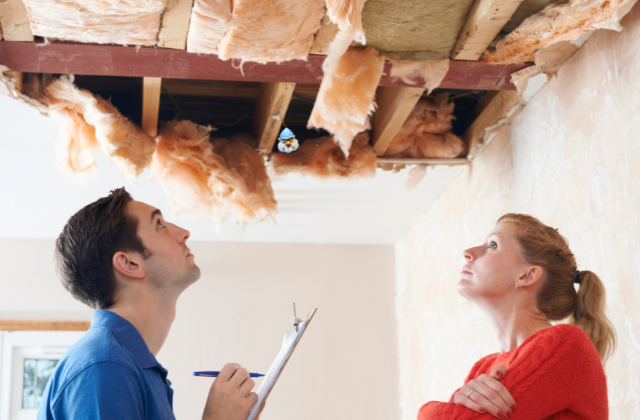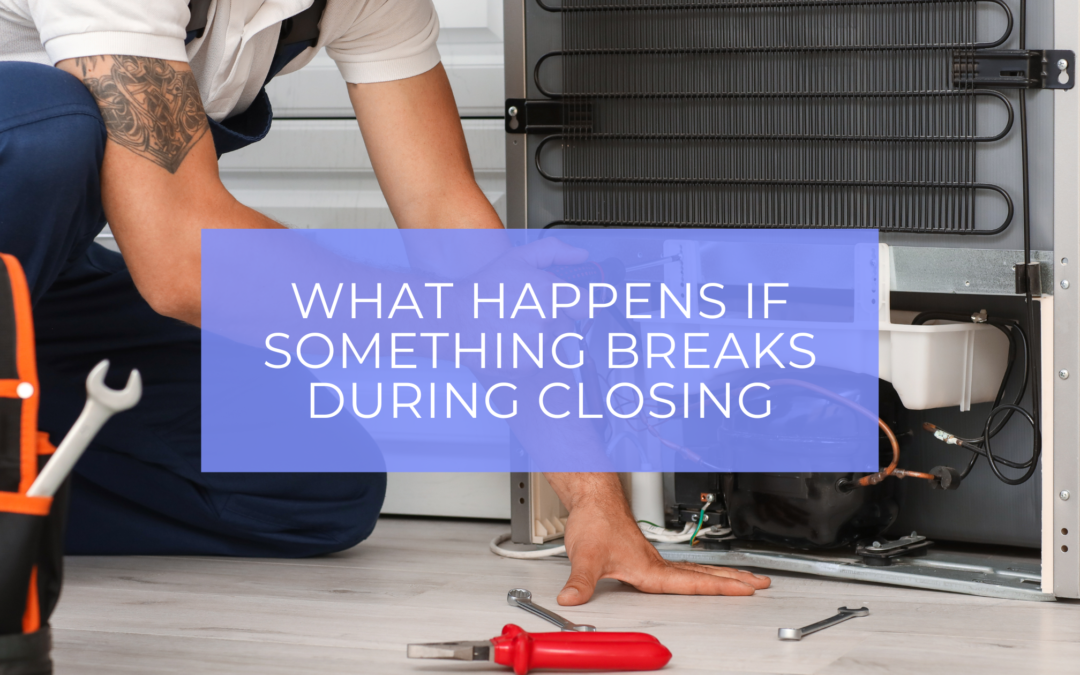Congratulations on buying your new Quinte area home! With moving preparations, things are about to get hectic, and the last thing you need is for an unexpected issue with the new house to throw a wrench in the gears. It’s essential to understand what happens if something comes up – who’s responsible, what recourse there is, and how to avoid some major unplanned expenses. From the final walkthrough to the period after closing, knowing how best to resolve any problems can alleviate stress and ensure a smooth transition into your new home.
At Quinte Living®, we’re offering our clients a one-year home systems and appliance warranty to protect them against unexpected expenses in their new homes. To learn more about this, email hello@quinteliving.com.
The Importance of a Final Walkthrough
We strongly recommend a final walkthrough as close as possible to the closing date. The ideal scenario is 24-48 hours before closing after the sellers have removed all their belongings, though this isn’t always possible. The final walkthrough allows you to inspect the property one last time to ensure it’s in the same condition as when you reached a purchase agreement. It’s an opportunity to verify that any negotiated repairs or improvements have been completed to a satisfactory standard. If any issues are discovered during this walkthrough, they can be addressed before closing. Your right to a final walkthrough is protected by case law in Ontario, but it is best practice to make sure your real estate agent spelled out the expectation in your accepted offer to buy your home.
Who’s Responsible Before Closing?
During the period between the final walkthrough and closing, it’s crucial to understand which party holds responsibility for addressing home issues:
Buyer’s Responsibility
If problems arise after a firm deal is reached, it’s typically the buyer’s responsibility to catch them, which is why the final walkthrough is so important. Buyers should promptly communicate any concerns to their real estate agent and their real estate lawyer. There may be immediate recourse, but in most cases, you’ll have to go ahead with closing and reserve the right to pursue the sellers in small claims court after closing.

Example: If the fridge is not operational during your final walkthrough but was operational during your home inspection, you still have to buy the house, and the sellers are not obligated to offer compensation before closing. However, you would have a strong case to present to a small claims judge should you wish to pursue damages. It is important to review your specific Agreement of Purchase and Sale with your real estate lawyer (or a litigator) before taking legal action.
However, if a fire in the home before closing impacted the property’s habitability, you have more grounds to stand on and, therefore, more options available to you. Again, this is a conversation to have with your lawyer if the situation ever comes up.
Seller’s Responsibility
Sellers are obligated to ensure that the property is delivered in the condition outlined in the purchase agreement. If the seller fails to address known issues or breaches contractual obligations, they may be responsible for resolving the problems or compensating the buyer accordingly. However, it’s essential for buyers to clearly outline their expectations regarding repairs and improvements during negotiations to avoid misunderstandings.
Who’s Responsible After Closing?
Despite thorough inspections and negotiations, it’s not uncommon for issues to arise in a new home. When problems occur post-closing, the responsibility for resolving them depends on various factors:
Seller’s Responsibility
In some cases, issues that arise shortly after closing may be the result of undisclosed defects or failure to fulfill contractual obligations on the seller’s part. Sellers may be held responsible for addressing these issues, especially if they were aware of the problems before closing and failed to disclose them. The seller’s obligation ends at closing, so you would have to prove that the issue existed before or at the time of possession. This must also be discussed with your real estate lawyer or a litigator if the issue is severe.
Buyer’s Responsibility
On the other hand, certain issues that arise after closing may be considered normal wear and tear or the result of the buyer’s actions. In those cases, it’s the buyer’s responsibility to address the problems and cover the associated costs of repairs or maintenance.
Example: If you run the dishwasher the day you get the keys and it doesn’t work, the seller may be liable, depending on the wording of your agreement. If you’ve lived in the home for two weeks and the dishwasher stops working, there is no recourse. This is where our home systems and appliance warranty comes in handy.
Seeking Resolution
When something breaks after closing, take prompt action to prevent further damage and take these steps to protect yourself:
Document the Issue
Take photographs and notes documenting the problem to support your claims and facilitate communication with relevant parties. Document all phone calls and save copies of all written exchanges.
Consult Professionals
Seek advice from your real estate agent, home inspector, and legal counsel to determine the best course of action. Depending on the severity of the issue, you may need to hire qualified professionals to assess and repair it.
Communicate Effectively
Communicate the problem clearly with your lawyer so they can communicate clearly on your behalf to the other party of the transaction (or their lawyer). It is important to communicate facts, not feelings. Clearly outline your expectations and seek a fair resolution that protects your interests. If an agreement can’t be reached and your lawyer thinks you have a case, you may have to file a lawsuit to seek compensation.

You can confidently handle potential challenges by understanding the responsibilities surrounding post-closing home issues and taking proactive steps to address them. Remember that thorough inspections, clear communication, and informed decision-making are key to protecting your investment and enjoying your new home to the fullest.
But there’s a way to remove some of the “what if?” anxiety altogether – Quinte Living’s complimentary one-year home systems and appliance warranty. Buying your next Quinte area or Prince Edward County home with Quinte Living gets you a warranty that covers a huge range of potential issues for a full year following your closing date. Broken appliances, electrical problems, plumbing issues – our warranty covers a lot. Contact us to discuss your home-buying needs, and we’ll help bring you peace of mind not just through the purchase process but long after you’ve settled into your fantastic new home!
Disclaimer: Valid on any home purchase over $350,000 in the municipalities of Quinte West, Belleville, and Prince Edward completed before July 31, 2024. Quinte Living® is not a licensed insurance broker; the policy is provided by a licensed third party. Terms, conditions, exceptions, and exclusions apply.* Contact us for more information. This incentive is optional and has no cash value. Quinte Living® is a real estate team with RE/MAX Quinte Ltd.
Stay in the loop!
We promise not to spam your inbox. 😊
Receive a once-a-month email with a real estate market update for the Quinte area and Prince Edward County, helpful tips for homeowners and buyers, and community insights like events and municipal decisions that impact property. Though, our readers tell us the best part is Puppy of the Month.
